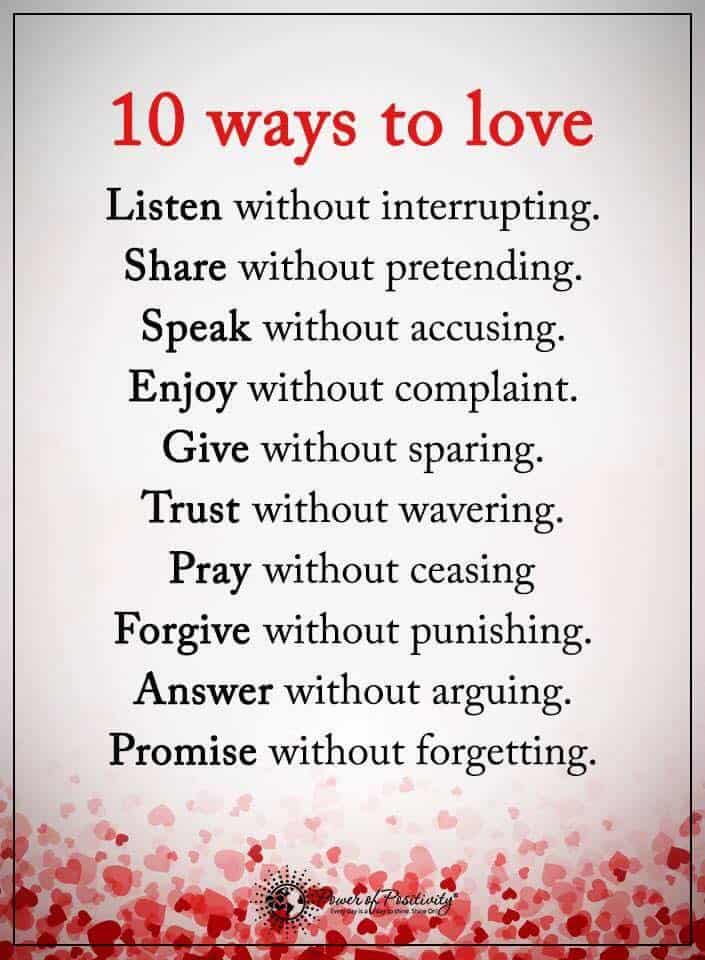Here are the key behavioral signs of a monkey brancher.
Understanding and recognizing patterns blocking emotional health and connection is crucial in any romantic relationship. Among these patterns is a concept known as Monkey Branching. Often heard in discussions about relationship challenges, this term vividly describes a situation many find themselves in, sometimes without even realizing it.
Monkey branching in relationships refers to the behavior of a person who, while still in a relationship, starts looking for another partner or begins forming a close attachment to someone else. It’s akin to how a monkey swings from branch to branch, never letting go of one branch until firmly grasping another.
In human relationships, this manifests as someone preparing for their next romantic connection before ending their current one. This behavior can be emotionally damaging and is often characterized by specific red flags, subtle or evident, which can go unnoticed.
The importance of recognizing these red flags cannot be overstated. It’s about protecting your emotional health, understanding your relationship’s dynamics, and ensuring you’re in a partnership based on mutual respect, trust, and love. Often, people caught in the cycle of monkey branching may not even be aware of their behavior’s impact on their partner. Therefore, understanding these signs is not just about identifying what your partner might be doing wrong; it’s also about self-awareness and ensuring that you are not unintentionally falling into this pattern yourself.
This article examines the fifteen red flags that reveal monkey branching. These signs are crucial for building and maintaining a healthy, fulfilling relationship.
15 Key Signs That Reveal Monkey Branching Behaviors

While it’s essential to approach these red flags with an open mind, it’s equally important to remember that not every sign necessarily means your partner is monkey branching. Communication and understanding are key. So, let’s explore these indicators, remembering that knowledge is the first step toward building stronger, more resilient relationships.
1 – Constantly Comparing You to Others
One of the more subtle yet significant red flags in a relationship is when your partner consistently compares you to others. It’s natural for people to notice differences between individuals, but when these comparisons become a regular part of your interactions, it can be a sign of monkey branching. This behavior might manifest as offhand comments about someone else doing certain things or overt comparisons of your qualities.
Such comparisons can erode self-esteem and create an atmosphere of competition within the relationship. It’s important to remember that each person brings unique qualities to a relationship, and these should be celebrated, not compared. Consider addressing the issue openly with your partner if you are in this situation. Discuss how these comparisons make you feel and the importance of appreciating each individual’s uniqueness in a relationship.
2 – Decreased Communication
Communication is the main sign of any healthy relationship. A noticeable decline in the depth and frequency of communication could signal that your partner’s attention is shifting elsewhere. This may start as taking longer to respond to texts or calls and can progress to less meaningful conversations or a lack of interest in sharing daily experiences.
Decreased communication can lead to disconnect and loneliness within a relationship, making it essential to address. Encourage open dialogue with your partner about how important communication is to you and try to understand any underlying issues causing this change.
3 – Increased Privacy with Their Technology
In today’s digital age, an increased sense of privacy around personal devices can be a red flag. If your partner suddenly starts to guard their phone or computer closely, changes passwords without explanation, or appears anxious when receiving notifications, it might indicate they’re hiding something, potentially a new romantic interest.
While respecting privacy is important, this behavior can lead to mistrust in a relationship. If you’re experiencing this, it’s crucial to approach the topic sensitively. Express your feelings and concerns without accusations, and focus on trust and openness in your relationship.
4 – Emotional Withdrawal
Emotional withdrawal is a significant red flag. This occurs when a partner becomes less emotionally available, less interested in your feelings, or less responsive to your emotional needs. It’s like they’re physically present but emotionally distant, possibly because their emotional energy is directed elsewhere.
This withdrawal can create a profound sense of loneliness and confusion. Addressing this issue involves creating a safe space for honest conversation. Express your feelings and ask your partner about their own. It’s vital to approach this with empathy and an open mind to understand what might be at the root of this change.
5 – Unexplained Absences and Schedule Changes
Sudden and frequent changes in your partner’s schedule, unexplained absences, or vagueness about their whereabouts can be monkey branching. They might indicate that they’re spending time with someone else or are involved in activities they don’t want you to know about.
These behaviors can cause feelings of insecurity and mistrust in a relationship. It’s essential to discuss these changes openly. Share your concerns and ask for clarity about these schedule changes. Remember, it’s about communication and understanding, not accusation.
6 – Overly Critical or Irritable Behavior
It’s natural for everyone to have their off days, but a consistent pattern of overly critical or irritable behavior from your partner can cause concern. This might look like them finding fault in many things you do, from how you dress to how you handle tasks. The criticism can feel less like constructive feedback and more like an expression of dissatisfaction or disinterest.
This behavior can create an environment of negativity, affecting your self-esteem and the relationship’s overall health. Approach this issue by expressing how this behavior makes you feel and seek to understand if there are underlying issues causing this change. Sometimes, this could reflect their internal struggles rather than dissatisfaction with the relationship.
7 – Lack of Interest in Making Plans Together
It can be disheartening when a partner starts disinterest in discussing or making plans. This shift might manifest as a reluctance to discuss the next steps, like moving in together, planning trips, or even making holiday plans. It could indicate that they are unsure about the relationship’s future.
The key is to open up a conversation about the future and express your desires and concerns. It is important to understand each other’s perspectives and what each of you wants from the relationship.
8 – Sudden Changes in Appearance
A sudden and marked change in your partner’s appearance or grooming habits can be more than just a desire to change their look. It is worth noting whether an interest in impressing drives these changes or if they coincide with other red flags.
This doesn’t mean every change should be viewed with suspicion, but if it feels out of character and coupled with other concerning signs, it’s appropriate to have an open conversation. Discuss the changes you’ve noticed and express your feelings in a supportive manner.

9 – Increased Mention of a Specific Friend or Co-worker
Suppose your partner starts talking frequently about a specific friend or co-worker, especially if they seem excited or overly enthusiastic about this person. In that case, it might indicate they’re emotionally drifting toward someone else. It’s especially concerning if they share details that suggest a close or intimate bond.
Address this by expressing your feelings about how often they mention this person. Communicating openly and calmly is crucial, as well as focusing on your feelings rather than making accusations.
10 – Reluctance to Introduce You to New Friends
In a healthy relationship, partners typically want to share their social worlds. It could be a red flag if your partner seems reluctant or refuses to introduce you to new friends or colleagues. This behavior might indicate that they are keeping their relationship with you and social life separate, which can be a precursor to monkey branching.
The approach here is to express your interest in being a part of their social life and understand their reasons for separating these areas. This conversation should be approached with sensitivity, as it might uncover deeper issues in the relationship.
11 – Hidden Social Media Activities
In today’s connected world, how your partner behaves online can offer insights into real-world relationships. It could be a warning sign if you notice your partner hiding their social media activities, being secretive about their online interactions, or suddenly changing their relationship status without discussion. This behavior may indicate they are fostering connections outside of your relationship that they aren’t comfortable sharing with you.
To address this, having an open conversation about your online boundaries and expectations is important. Discuss how transparency in social media can help build trust and understanding in your relationship.
12 – Avoiding Physical Intimacy
A decrease in physical intimacy can be a significant indicator of emotional distance. If your partner consistently avoids physical closeness, it may be a sign that they’re emotionally connecting with someone else. While physical intimacy can ebb and flow in a relationship, prolonged or unexplained avoidance can signify deeper issues.
A sensitive approach is needed to discuss this topic. Share your feelings about the change in your physical relationship and ask if they have any concerns or issues. Sometimes, this could be related to stress, health issues, or other personal matters rather than the relationship itself.
13 – Deflecting Conversations about Commitment
If your partner consistently avoids or deflects conversations about commitment or the future of your relationship, this can be a red flag. This behavior may indicate a lack of certainty or a reluctance to deepen the relationship, possibly because they are considering other options.
It’s essential to address this concern directly but empathetically. Express your need for clarity about the relationship’s future and try to understand their perspective. Remember, it’s about creating a safe space for honest and open communication.
14 – Overemphasis on Independence
While a healthy relationship involves a balance of togetherness and independence, overemphasizing independence can signify monkey branching. If your partner suddenly starts insisting on more alone time, making plans without you, they might be preparing for a life apart from the relationship.
Discuss how you can respect each other’s need for independence while maintaining a healthy and connected relationship. Understanding and respecting personal space is key, as is nurturing your connection as a couple.
15 – Frequent Nostalgia About Past Relationships
Finally, if your partner often reminisces about past relationships or compares your current relationship to previous ones, this might be a cause for concern. This behavior can indicate dissatisfaction with the present relationship and could be a sign they are holding on to past emotional connections.
In addressing this, focus on the present and future of your relationship. Share your feelings about these reminiscences and inquire about what your partner feels is lacking in your current relationship. This conversation can open up opportunities to strengthen your bond and address any underlying issues.
Final Thoughts on Protecting Your Emotional Health if You Think Your Partner is a Monkey Brancher
Encountering signs of monkey branching can be challenging and emotionally taxing when navigating the complexities of relationships. Recognizing these red flags is an important step in understanding the dynamics of your relationship. Still, it’s equally crucial to handle this awareness with care and compassion—for both yourself and your partner.
First and foremost, know that encountering these issues does not reflect your worth or desirability. These situations can arise in any relationship and are often more about the other person’s struggles or choices than anything you’ve done. It’s important to approach these challenges with a mindset that seeks understanding and growth rather than blame or guilt.
When faced with potential signs of monkey branching, it’s vital to communicate your feelings and concerns openly and honestly. This isn’t about confrontation but about seeking clarity and understanding. Remember, healthy communication is a two-way street—expressing your feelings and listening to your partner’s perspective.
If these discussions lead to the realization that your relationship is not fulfilling or healthy, it’s important to prioritize your emotional well-being. This might mean seeking support from friends, family, or a mental health professional. Counseling offfers a safe space to explore your feelings and decide on your best path forward.
Lastly, remember that it’s okay to put yourself first. Your emotional health is paramount, and being in a relationship where you feel valued and loved is essential. If your current relationship isn’t providing this, it’s okay to consider a future where you can find the happiness and respect you deserve.
Dealing with the possibility of monkey branching is undoubtedly tough, but it’s also an opportunity for personal growth and self-discovery. With compassion, self-care, and the right support, you can navigate this challenge and emerge stronger, no matter the outcome.
The post 15 Red Flags That Reveal Monkey Branching appeared first on Power of Positivity: Positive Thinking & Attitude.




